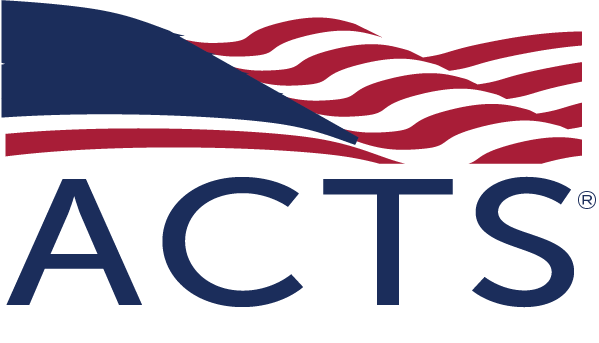“It would be easier for my family and my school if I wasn’t around anymore.”
“I haven’t had a good night’s sleep in six months.”
“I’m having health problems that doctors can’t explain.”
“I feel like I’m on an island.”
In the past three years, these are statements from Christian school leaders that have haunted me. The weight of Christian school leadership is heavy. Take the internal pressures of inflationary budgeting, managing staff expectations, diffusing parent situations, addressing the growing student mental health crisis, and leading up to a board. Combine that with the external pressures of a changing customer base and the rise of the “nones” (those with no religious affiliation), increasing competition, growing religious liberty cases, and the weight of Christian school leadership sometimes seems unbearable.
Transparency is a term many parents, potentially even staff, bring up as a goal or a core value, but for leaders transparency is impossible. There are simply things you cannot share. What happens when your brother-in-law is a parent at the school, your spouse is a teacher, your close friend is a board member, or your pastor is your boss? Who do you go to when the weight on your shoulders is bearing down? Christian school leadership is, by its very nature, lonely.
Every week toward the end of last school year, one head of school has reached out to me and said, “Sadie, I’m out. My health can’t take the role anymore.” This keeps me up at night. Our schools cannot be healthy with unhealthy leaders. So often we measure success by student outcomes; just look at the millions offered in scholarship funding, the average test scores, college admittance rates, and other general academic measurements we tout. But at the end of the day, we cannot completely control these student outcomes. Student outcomes rely on variables far outside of a school’s control, namely the role of the father in the household, technology and access to information, and church attendance. The school provides the best environment we can in hopes of fostering student flourishing. So, what can we actually control? Our adult culture.
We cannot succeed as a school and have unhealthy people. The two are wholly incompatible, and it starts at the top. To be faithfully present requires the mental, emotional, spiritual, and physical capacity to show up with your full self. Think of a gas gauge and rank on a scale from full to empty: Where is your spiritual gauge at? Your physical? Your mental and emotional? How do you know and when was the last time you checked your levels?
We must fight the mindset that all movement is progress. In the nonprofit space, we often conflate the two, but I would propose that many of our schools and many of our leaders would benefit from a pause. Are there activities we are currently doing that we should stop doing? Are there activities we are currently doing that could be done another, more effective way? I lead the Herzog Foundation Institute, which hosts leadership trainings for school leaders across the country. Much of my work can be defined by this: inviting leaders into a strategic pause to get clarity on who we are so we know how to behave.
No organization drifts to excellence. No leader drifts to excellence. “A strategic pause” or audit is essential to ensuring we do not drift into the status quo or into burnout. I’d like to propose five liturgies, or habits of practice, that lonely leaders can implement in order to fight against this drift.
Liturgy #1: Make Personal Recovery and Growth Plans
There is a difference between stress and eustress. Eustress is a positive form of stress; think about working out and building up muscle. The reality is that the work of Christian school leadership will always be accompanied with stress. There is no escaping that. However, healthy leaders can turn stress into eustress, a positive stretching of yourself and your organization.
First, you must reclaim and remind yourself of your “why.” Why did you get into this work in the first place? It wasn’t for the money or the fame, I’m sure. Spend time articulating why you are in the business of Christian education. Then, ask yourself if your school’s why is clear because, as the stoic philosopher Lucius Annaeus Seneca said, if there is no port in mind, no wind is favorable. A lack of clarity is the quickest way to burn out yourself and your people. What’s your why, and what’s your organization’s why?
Next, make recovery and growth plans—my mentor, Zach Clark, founder and lead spokesman of Leadership and Development LLC, describes that a healthy cycle of eustress creates energy to activate in various seasons of leadership. As a leader, understanding the season you are in is vital. There will be seasons where you are stretched and feel like you cannot sustain. Seeing that as a season helps leaders build endurance, knowing that there’s another season around the corner and knowing how to usher in new seasons for your organization. As a leader, here are some helpful tips for understanding and responding in your seasons:
- Identify the activities that drain your cup. Make a list of the things in your life that drain joy. From that list, what can you stop doing? From that list, what are tasks or encounters that you can’t avoid? Of those, prepare for them and give yourself time to recover through what fills you.
- Identify the activities that fill your cup. Make a list of the things in your life that add joy. Be sure to prioritize and make time for these things. A walk in nature, dinner with your spouse, a call with a mentor, gardening—whatever these might be, hold your schedule accountable for them. If you are in an overwhelmingly tough or busy season, you have to make time for joy-filling activities.
- Identify your mentors. Do you have someone you can call who has walked a mile in your shoes? Sometimes when I’m too close to a problem, I need an external perspective. Sometimes when a problem is causing unhealthy behaviors in my life, I need someone to speak truth in love to me. Sometimes I just need an ear to air my grievances. Mentors point out patterns in your life and can speak clarity through the noise (more on this in a moment).
Liturgy 2: Take a Sabbatical or Strategic Time Away
Heads of school, if you’ve been in your role for more than seven years, I would propose to you and your board that you’re due for time away. This is not time away over summer or spring break, but rather time away during the school year, paid, with the goal of feeding your soul and your marriage. Perhaps an extended sabbatical isn’t feasible, but start somewhere.
Liturgy #3: Participate in Non-School Activities
Need I say this? Your school is not your life! Share a meal with a family that doesn’t know your school—and not to recruit them! Play golf with friends on Wednesdays. Learn a new skill or find a hobby! Fix up an old jeep, learn to bake bread, or nerd out on the origins of your favorite coffee.
Liturgy #4: Ask for Their Phone Number
Get someone’s phone number who you can call or text when you need. Ideally, this is someone who knows Christian education but is out of state, outside of your close circles, and someone who knows the nuances of Christian school leadership but doesn’t know your community. Be a phone number for another school leader who knows they can call when they’re overwhelmed, when they have a new problem, or when they just need to know someone understands the weight on their shoulders. If you’re coming to Converge, share your cell number with a new connection, and then don’t be afraid to text when you need it.
Liturgy #5: Read Broadly
Want to be a courageous leader? Be a curious leader. The best leaders, in or out of Christian education, are curious. They read regularly, and they read broadly. Read about trends in Christian education, of course, but take the time to read the biography that’s been sitting on your shelf for years. Read Lewis, Tolkien, and even read interesting news articles—what are trends with Gen Z, AI, philanthropy, or the college transfer portal? Have you heard about the new passenger trips to the moon? Read about it!
The infamous thief of our joy as leaders is time. I know you’re reading this thinking, “but Sadie, when would I have the time?” I would answer your question with a question: if you don’t make the time now, how much longer can you sustain your current pace?
A dear friend of mine was a head of school for almost seven years until one day he started having seizures that doctors couldn’t explain other than stress. His marriage was rocky, and by the time he got home from school, he had little energy left for his kids. He saw many school parents and board members at church, taking nearly all the joy out of Sunday morning and replacing it with another layer of anxiety. He is no longer in K–12 education. Don’t let his story be yours. Boards, shepherd your head of school. Heads, hold yourself accountable. If you are not healthy, your school will not be healthy.
Jesus’ ministry was only three years long, yet he fasted for forty days. He slept when he was tired. He sat with Mary and Martha. He made time to pray, to grieve, and to eat. Our God, the Creator of the universe, is himself in relationship. If he is, how much more do we mere mortals need the same?
Interested in further reading? Check out A Ruthless Elimination of Hurry by John Mark Comer and The Common Rule by Justin Earley.
















































I will be rereading and dwelling on this article in the days to come. Thank you for speaking timely truth and encouragement.
Zach Clark is an incredible leader, humble in heart and steady as a leader. His coaching staff is invaluable. Your liturgy list just makes sense and is filled with practicalities, items that are doable, and yet innovative. Having a plan that breaks down the stress can be a lifesaver. All school leaders need to be able to embrace an effective plan that works. Sitting in the leader’s chair for many years, your blog resounded with me. Those of us who have, must have a literal balance in their lives to survive and to thrive. Relationships matter! Within our spiritual lives, Scripture gives us the promises that only our great God can give us all as a gift: “Humble yourselves before the Lord and He will lift you up.” James 4:10
This is so well said and so true. We definitely need to be reminded that an empty cup can’t fill others. I love your passion for helping leaders and workers in this mission.
What a fantastic article! You are an inspiration and encouragement to Christian school leaders. Have you thought of writing your own book? Perhaps melding your thoughts regarding the union of Heads of School and Board Chairs/members? As with most of your book recommendations, these two are going in my tool box. Thank you, Sadie, for following God’s direction and speaking life into some really tired leaders.